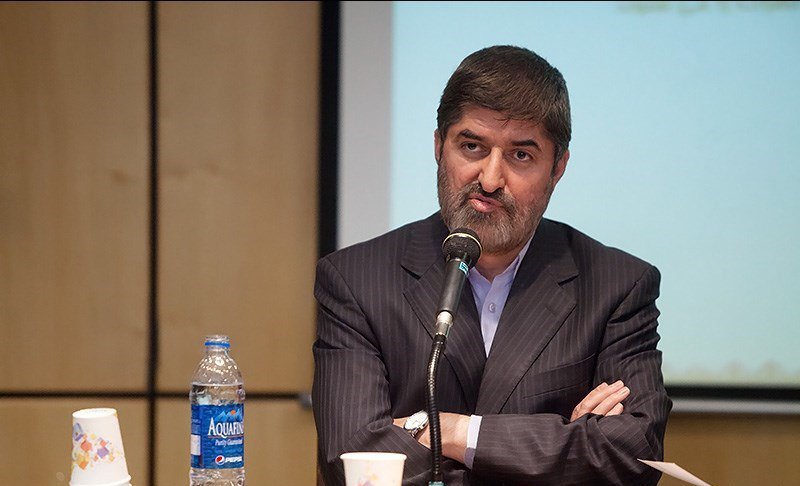Iranian MP Compares Prosecutor’s Abrupt Cancellation of His Speech to ISIS Tactics

Following the abrupt cancellation of his speech by a prosecutor, the Iranian Parliament’s Deputy Speaker Ali Motahhari has written to the president calling for an investigation into the incident, while comparing it to the tactics used by the Arab terrorist group the Islamic State, which Iranians refer to as Daesh.
“I wonder whether these Daesh-type actions are carried out deliberately, or out of ignorance?” wrote the conservative member of Parliament in his letter to President Hassan Rouhani on November 20, 2016—hours after his scheduled speech at Mashhad’s Razi Hall was canceled by Prosecutor Gholamali Sadeghi, who provided no explanation.
“Please clarify who rules Khorasan-Razavi Province? The governor general, the prosecutor, or the Friday prayer leader? Are the police under the command of the governor general, or the prosecutor? Why should the prosecutor be interfering in these kinds of events?”
Motahhari, who had received a permit from the governor general for his speech about the third imam of Shi’a Islam, added that Ayatollah Ahmad Alamolholda, Mashhad’s powerful ultra-conservative Friday prayer leader, might have influenced the prosecutor’s decision. “I hope Mr. Alamolhoda was not involved, although his role in connection with the prosecutor is not clear to me,” he said.
Motahhari, the son of an influential senior ayatollah who was assassinated shortly after Iran’s 1979 revolution, has a long history of criticizing the Islamic Republic’s policies.
On October 16, he joined more than a dozen members of Parliament in signing a letter to the Judiciary seeking a review of the 16-year prison sentence issued to prominent human rights activist Narges Mohammadi. On November 12, a week before his scheduled speech in Mashhad, Motahhari also said the Islamic Republic “must accept legitimate criticisms on human rights” in upcoming talks with the European Union.
In addition to writing to the president, Motahhari has instructed his lawyer, Mostafa Tork Hamadani, to sue the prosecutor in Mashhad. “Following an unlawful action by a judicial official in Khorasan-Razavi Province, I have prepared and submitted a complaint on behalf of Mr. Ali Motahhari to the appropriate judicial authority,” Hamadani told the semi-official Iranian Student News Agency on November 21.
According to the spokesman for the Interior Ministry, Sadeghi, Mashhad’s prosecutor, informed the ministry only a day before Motahhari’s speech that the event at Razi Hall had been banned, and did not provide a reason. “We coordinated with the Khorasan-Razavi governor general’s office and managed to find another venue for the speech, but that too was blocked by the prosecutor,” added Samani.
Motahhari, who received public support on social media networks after his speech was banned with the hashtag #FreeMashhad, also received backing from his colleagues. Parliament Speaker Ali Conservative Larijani described the incident as “regrettable.”
“These kinds of arbitrary actions cause division and discord in the foundations of the country and are in no way in the interest of the country,” said Larijani, whose radical-conservative brother Sadegh Larijani heads the Judiciary and is ultimately responsible for the actions of local prosecutors.
Alamolhoda—who has advocated banning music concerts and is often lampooned by Iranian cartoonists for his authoritarian behavior—has denied involvement in the incident, and threatened to counter-sue Motahhari.
“Ayatollah Alamolhoda was not concerned with this speech and reserves the right to take legal action against slanderous individuals,” said a statement from his office on November 20.
Motahhari’s speech was blocked just days after Rouhani instructed the Interior Ministry to implement the Law on Activities of Political Parties and Groups. According to Article 18, which recognizes “the freedom of political activity within the law,” no political figure should be banned from speaking at an officially sanctioned event.






